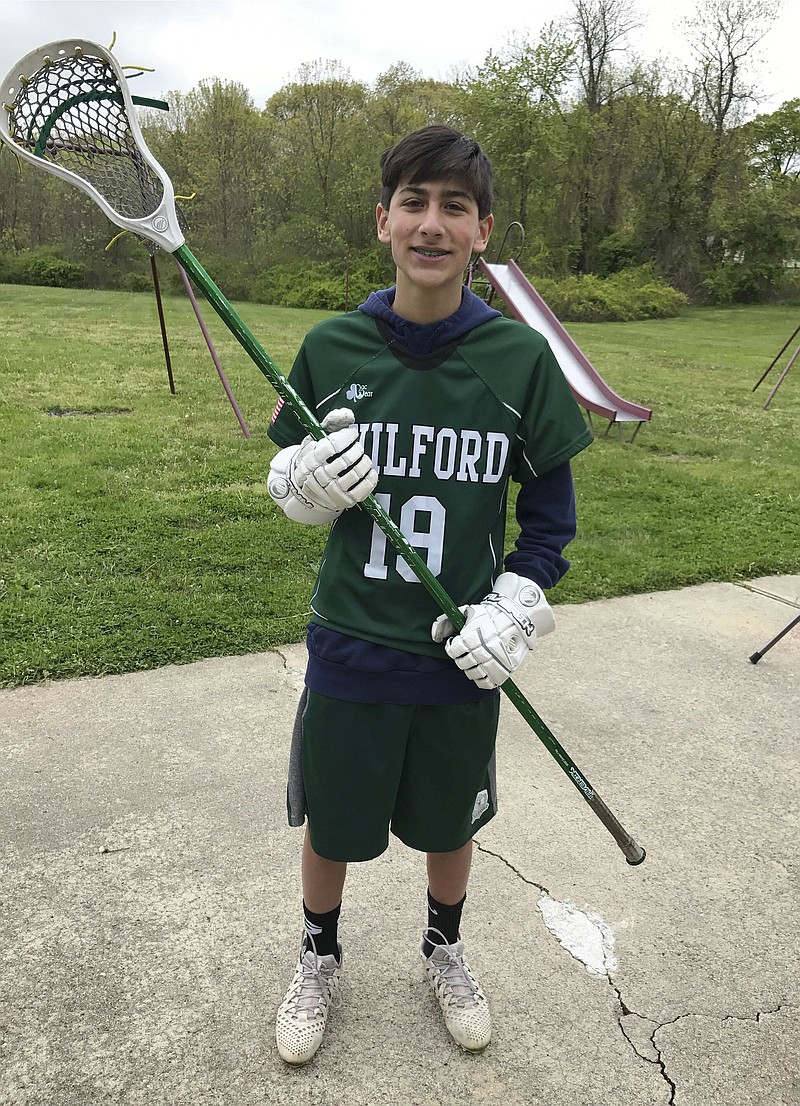HARTFORD, Conn. (AP) — Still coping with the death of their teenage son a year ago, Michael and Kristin Song are on a mission that is helping to relieve some of their pain — advocating for tougher federal and state laws on safe gun storage aimed at keeping firearms out of the hands of children.
Ethan Song, 15, accidentally shot himself in the head with a handgun owned by his friend’s father in their hometown of Guilford, Connecticut, on Jan. 31, 2018. The friend’s father had kept the .357 magnum and two other guns secured with gun locks in a plastic container in his bedroom closet, but keys to the locks and ammunition also were in the container, police said.
Versions of “Ethan’s Law” were introduced this month in the U.S. Senate and Connecticut House of Representatives. Under the federal bill, gun owners could face up to five years in prison and a $500 fine if they leave a firearm unsecured at home and a minor or someone else who can’t legally possess a gun uses it to injure or kill themselves or another person. It also includes incentives for states to pass their own laws.
“We really want to get it passed,” Michael Song said. “I truly believe this could save thousands of lives. It’s a mission for our family to help us get through this tragedy that we have had to endure.”
Nearly 1,700 children under 18 died from accidental gun deaths from 2001-17 and more than 33,000 were injured, according to the federal Centers for Disease Control and Prevention. Advocates said recent research shows such accidents happened roughly twice as often as the records indicate.
Another 7,700 minors intentionally killed themselves with guns during the same time period, and more than 2,500 intentionally injured themselves with firearms, according to the CDC.
“If a child is in the home, your guns should be stored safely. Period,” said U.S. Sen. Chris Murphy, who introduced the federal law with fellow Democratic Connecticut U.S. Sen. Richard Blumenthal.
Supporters believe such laws also could help prevent school shootings. In nearly two-thirds of school shootings, the shooters used a gun obtained from their home or a relatives’ home, according to a report by the Secret Service and U.S. Department of Education.
Federal law currently doesn’t require safe storage of firearms by their owners. It does mandate that licensed manufacturers and dealers include gun storage or safety devices when they sell or transfer handguns, but the law doesn’t apply to private sellers.
Eleven states have laws concerning gun locking devices, with Massachusetts being the only state that requires all firearms be stored with locks in place, according to the Giffords Law Center to Prevent Gun Violence. In Connecticut, California and New York, gun owners must lock their weapons when storing them in certain circumstances. Other states have gun lock laws similar to the federal law.
Gun rights supporters said gun owners should make their firearms inaccessible to unauthorized people, but they oppose laws telling owners specifically how to store their weapons.
“Many factors must be considered when deciding where and how to store guns,” said Catherine Mortensen, spokeswoman for the National Rifle Association. “A person’s particular situation will be a major part of the consideration. We reject government mandates on specific methods of storage because those fail to recognize the unique circumstances of individuals and families.”
In Ethan Song’s case, Connecticut prosecutors said they could not charge Ethan’s friend’s father under the state’s existing safe gun storage law because it requires only loaded guns to be safely stored. Prosecutors said there was no evidence the friend’s father stored the guns loaded, and no evidence he knew or should have known a juvenile was likely to gain access to the guns without his permission.
Connecticut state lawmakers say “Ethan’s Law” would revise state law to close loopholes and require all guns — loaded or unloaded — be safely stored.
“The real intent of the law is to get everybody to lock them up, just like we buckle our seat belts now and think nothing of it,” Michael Song said. “I’m just hoping people come to their senses and say this is logical. We can save lives.”

